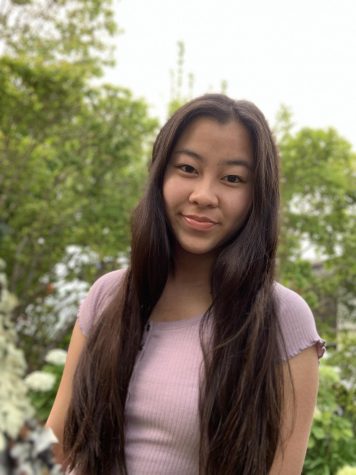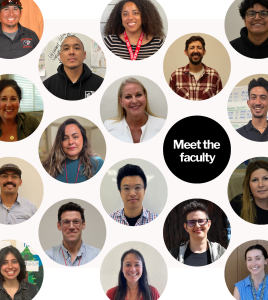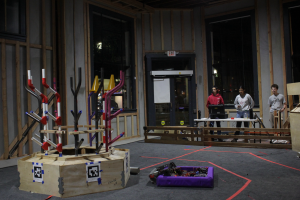Reading is a window to the world
When we close our novels, leave the comfort of our couches and head out into the real world, those we encounter will thank us for being readers.
February 9, 2021
Stuck in the monotony of quarantine life, I often feel like I’m on auto-pilot, rotating between my bed, the dining table and my desk. Sometimes I feel like I don’t even inhabit my own body —I’m a shell of a person, just going through the motions. That’s a little dramatic. But, I don’t think it’s uncommon to say that people have not only lost touch with others during quarantine, but also, in a way, themselves. However, I have found a good way to pass the time. For me, books have almost acted as a substitute for human contact. I think you can live vicariously through friends, real or fictional. While I cannot explore crowded cities, sip matcha tea at a corner cafe or take a road trip with my friends, I find happiness in watching others do so. I think reading is something everyone can get into. Everyone likes Netflix, right? Books are the same story. Literally. Reading has also helped me interpret and interact with the tumultuous social and political climate of today. And in doing so, I’ve figured out more about myself.
One of my favorite recent reads is “The Poppy War” by R.F. Kuang. It’s an adult fantasy novel, but it’s much more than scintillating fairy wings and warring between fantastical creatures. Set in 20th century China, Rin, a poor war orphan, tests into Sinegard, the nation’s most prestigious military academy, purely through her own grit and determination (since the testing is basically pay-to-play). At the academy, Rin’s dark skin marks her as a target for bullying, dished out by both her wealthy, fair-skinned classmates and some of her teachers. However, Rin’s aptitude for academics and her familiarity with discrimination enable her to rise to the top of her class.
One of my favorite aspects of the novel is how morally ambiguous Rin is. She’s the perfect anti-hero. Sometimes I wanted to cheer for Rin, the underdog from a farming province, and other times her hunger for power was completely off-putting. Rin is the perfect example of how the world is not clean-cut. In today’s polarized society, there’s plenty of animosity between political and social groups, and it seems so easy to label one as right and one as wrong. But I can’t even make a sound judgement about a fictional character. Rin has made me rethink the way I see people who I thought had “wrong ideas.” She reminds me to keep an open mind.
The novel is also loosely based on the Opium Wars and the Sino-Japanese Wars, and all the gritty, gruesome war crimes depicted in the book are rooted in truth. While they’re not easy to read, they foster a certain kind of empathy within the reader.
The recent riot on the Capitol, election protests and Black Lives Matter (BLM) protests (and the other unprecedented events of the past year) all may seem unapproachable and far-off, but books help bridge the gap. It’s not about the same kinds of things happening in the real and fictional world; it’s about finding parallels in themes. One of my elementary school teachers is a die-hard reader — everything from children’s books to Shakespearean works — and she constantly told us that books make people care. And I wholeheartedly agree. Once you come to know someone as intimately as books allow you to know characters, you begin to see parts of them everywhere you look.
“The Glass Castle” is a memoir by Jeanette Walls and one of my favorite books of all-time. Jeanette tells the story of her upbringing; the reader follows as Jeanette navigates her family’s nomadic lifestyle, all while dealing with poverty and her dysfunctional parents. As a teen, Jeanette toils to earn the money needed to escape her hostile home and travels to New York to pursue college and her career as a journalist. As I watched AOC vehemently argue for essential workers on inauguration day, I saw the same determination that Jeanette exhibits; I saw the same fire in the eyes of the workers surrounding the congresswoman. Reading “The Glass Castle” allowed me to see struggle and turmoil first-hand, something I would have not been able to observe otherwise, as a privileged middle-class citizen. Books teach us how to feel for other people, and compassion can only better the world.
As we discuss the recent breach of the Capitol and last year’s BLM protests, and compare the inconsistency between the treatment of white and black protestors, Henrietta’s heartbreaking struggle with institutionalized racism in “The Immortal Life of Henrietta Lacks” only adds fuel to the fire. It’s a nonfiction book that I’m currently reading in English class, and the exploitation depicted in it is almost unbelievable. Henrietta Lacks was a black woman diagnosed with cervical cancer in the 1950s. Doctors extracted a sample of her cancer cells without her consent, and the cell line that grew from the sample has been the key to unlocking modern medicine. Cancer research, vaccines and treatment of genetic diseases are only a few of the countless things her cells have done for humanity. But, Henrietta’s family was not compensated in any way. Stories like Henrietta’s allow me to see beyond my relatively sheltered life. They give us a way to experience things that we normally might not get the opportunity to. They get us to feel things we normally might not get the opportunity to. I cannot begin to understand what it feels like to be Black, but reading this book has made me more informed about institutionalized racism and the hardships it brings. Watching Henrietta live under racism, and then following her children as they experience the same injustices their mother, fostered an empathy in me that no news article or high school textbook could teach.
We say that knowledge is power. While books certainly teach us valuable information, I believe the ultimate benefit of reading is not intellect; it is the capacity to feel for others. Books give us intimate insight into what it’s like to be other people. And once we understand people as deeply as books allow us to, it’s impossible not to cheer them on. It’s impossible not to hurt when they do. And when we close our novels, leave the comfort of our couches and head out into the real world, those we encounter will thank us for being readers.






































